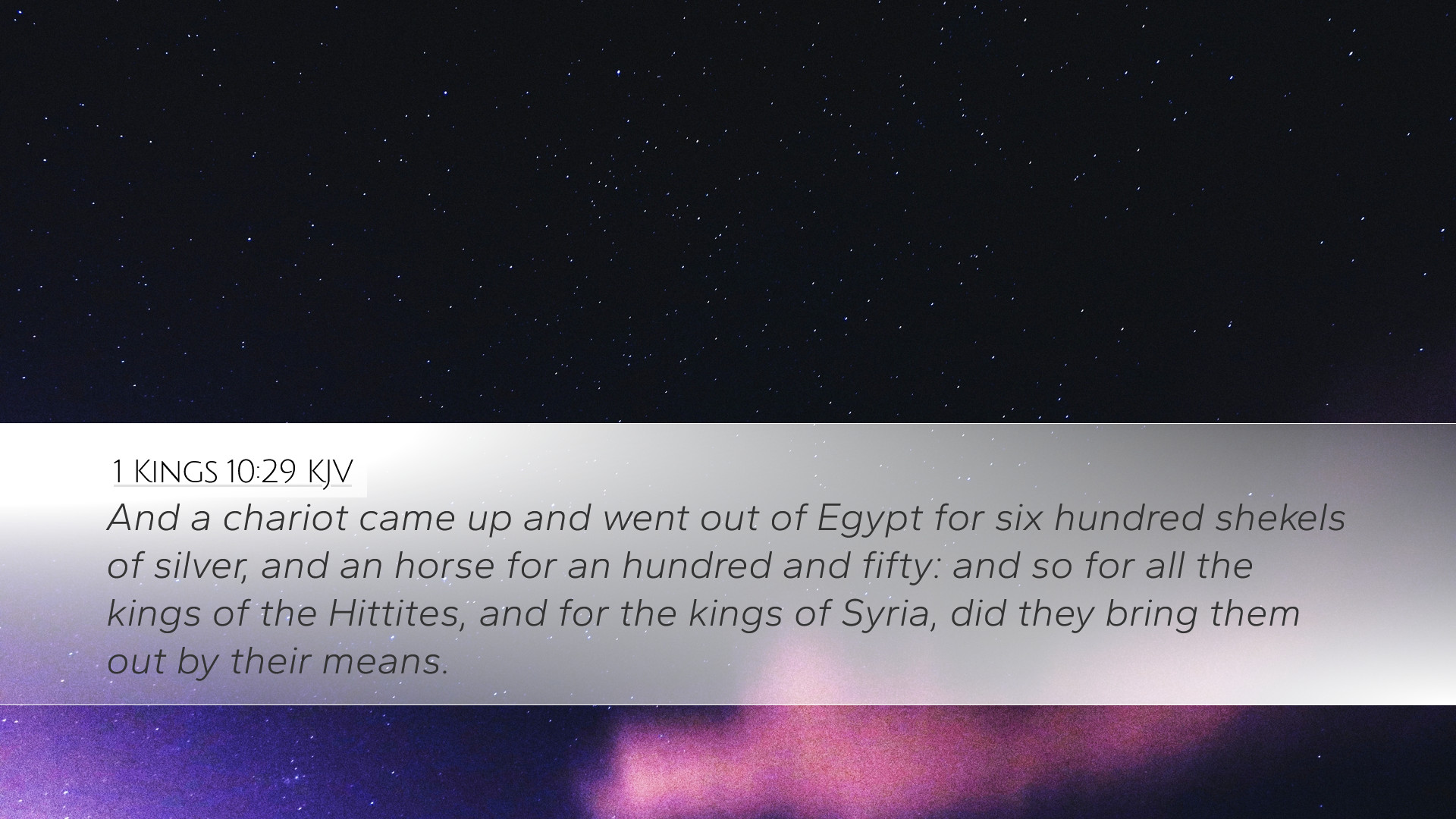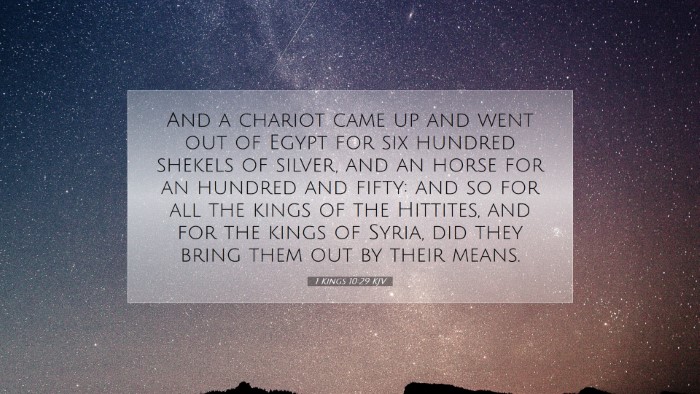Commentary on 1 Kings 10:29
Verse: "And a chariot came up and went out of Egypt for six hundred shekels of silver, and a horse for an hundred and fifty: and so for all the kings of the Hittites, and for the kings of Syria, did they bring them out by their means." (1 Kings 10:29)
Introduction
This verse appears within the narrative of Solomon's reign and his interaction with foreign nations, particularly the trade relations established with Egypt. It highlights important aspects of economic exchange in the ancient Near East and underscores the opulence of Solomon's kingdom.
Historical Context
- The historical significance of Egypt as a trading partner.
- The prominence of chariots and horses in warfare during this period.
- Symbolism of wealth and power represented through horses and chariots.
Commentary Insights
Matthew Henry's Commentary
Matthew Henry emphasizes the importance of this verse as illustrating the resources of Solomon's kingdom. He notes that the importation of chariots and horses from Egypt signifies the wealth and military strength of Israel under Solomon. Henry discusses the spiritual implications: the material blessings should ideally lead to greater service to God, yet cautions about the dangers of relying on foreign military power rather than divine assistance.
Albert Barnes' Notes on the Bible
Barnes provides a detailed examination of the trade arrangements described in 1 Kings 10:29. He addresses the specifications of the costs—600 shekels for a chariot and 150 for a horse—highlighting the economic implications of such transactions. Barnes also relates these imports to the description of Solomon's wealth. He points out how Solomon's dealings with Egypt and other nations fulfill the prophecy of grandeur for Israel, while also pondering the long-term consequences of such reliance on foreign imports.
Adam Clarke's Commentary
Clarke delves into the logistics of the trade in horses and chariots. He highlights that these resources were crucial for the military might of Solomon's kingdom. Clarke mentions how horses from Egypt were regarded as superior and notes the transportation means that would have been used to carry these commodities to Israel. Furthermore, he reflects on the cultural exchanges that occurred as a result of these trade relations, which influenced not only military strategies but also diplomatic relations. Clarke asserts that while such wealth is a marker of Solomon's success, it is vital to remember the ultimate sovereignty of God over earthly kingdoms.
Theological Reflections
This verse provides scholars and theologians with rich material for reflection on the nature of wealth, power, and reliance on human resources versus divine guidance. Within the broader narrative of 1 Kings, it serves as a reminder of the fluctuating nature of fidelity to God that often accompanies earthly success.
Pastors may find practical applications from this verse to approach the topic of stewardship. The dependence on foreign alliances can be likened to relying on worldly systems instead of trusting in God's provision. This verse encourages careful examination of where a community's resources are sourced and emphasizes a need for spiritual discernment regarding alliances we forge today.
Practical Applications
- Stewardship: Understanding the source of resources and making choices that align with God's purpose.
- Leadership: Leaders should evaluate the influence of external wealth and alliances on their faithfulness to God.
- Trust in God: Encouragement to rely on divine guidance rather than worldly systems.
Concluding Thoughts
In summary, 1 Kings 10:29 serves as a potent reminder of the intersection of economics, power, and faith in the life of a believer. The insights from public domain commentaries by revered scholars like Henry, Barnes, and Clarke provide a well-rounded understanding of the implications of this verse. For pastors, students, theologians, and Bible scholars, this passage invites a deeper examination of how earthly systems relate to spiritual truths and the need for reliance on God amidst affluence.


